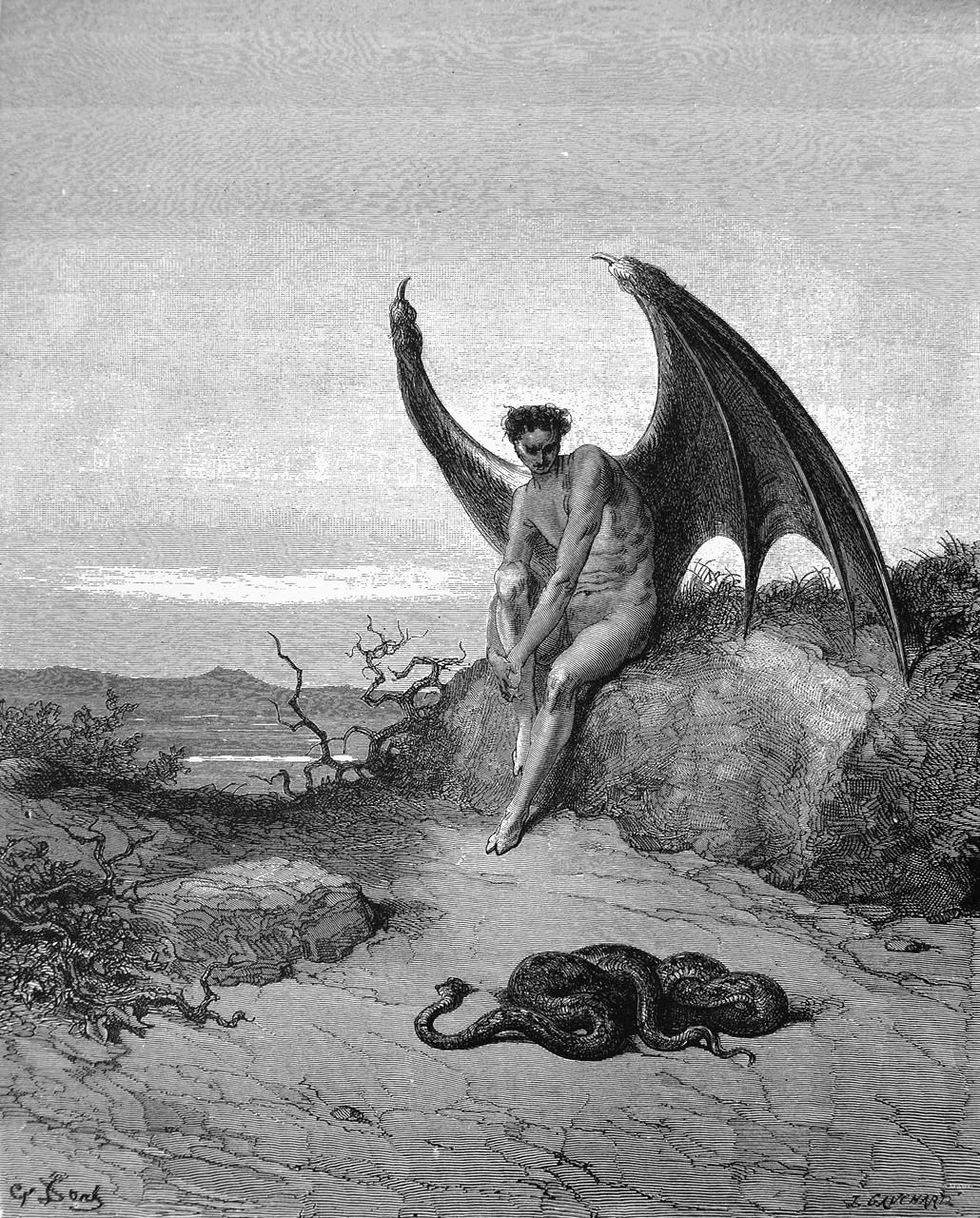 |
| Lucifer, the Fallen Angel by Gustave Doré |
In Paradise Lost, Satan himself seems convinced that his damnation is final, the road to redemption being blocked not only by his own weakness but also by a spiteful god. In Book V, the apostate angel laments:
But say I could repent and could obtain
By act of grace my former state; how soon
Would highth recall high thoughts, how soon unsay
What feigned submission swore: ease would recant
Vows made in pain, as violent and void.
For never can true reconcilement grow
Where wounds of deadly hate have pierced so deep:
Which would but lead me to a worse relapse
And heavier fall: . . . .(5:93-101)
I've been thinking a lot about how Satan's condition really differs from that of Milton's Adam and Eve. In the end, both acted in defiance to God's will and were cast out of His presence, but only Adam and Eve were offered a via purifico, or road to purification. In Book III, the Father explains to some extent the rationale behind this exclusion:
The first sort by their own suggestion fell,In other words, Satan and his hosts actively chose to rebel, while Adam and Eve were passive 'victims.' I think there's more to be examined in the two conditions, though.
Self-tempted, self-depraved: man falls deceived
By the other first: man therefore shall find grace,
The other none: . . . .(3:129-132)
| Adam and Eve, by Lucas Cranach the Elder |
These are ideas that I'll be looking into more thoroughly as I carry out further research and reading, but for now, what are your thoughts on redemption? How does community play a role in personal identification, and can connectedness with others truly bring about a sort of 'redemption'? How can we find parallels to the modern age in Satan's independence and resultant isolation?
Article Source: Ebeling, Rachel M. "The Relationship of Adam and Eve: Identity and Redemption in Milton's Paradise Lost." Honors Thesis, Brigham Young University, 2011. Print.
For some reason I feel like God regards Adam and Eve in much the same way as any youngest child (myself included) would understand; they are kind of his crowning glory, you know? That's not to say that he doesn't love them more than any of his other creations or his other angels...but I kind of giggled when you said that they both acted in defiance to God's will, but Adam and Eve were offered a significantly "nicer" punishment. I can almost imagine Satan in the side lines throwing his hands up: "They act out and all they get is via purifico? I got cast into HELL." --But so is the woe of the middle child. Just kidding.
ReplyDelete